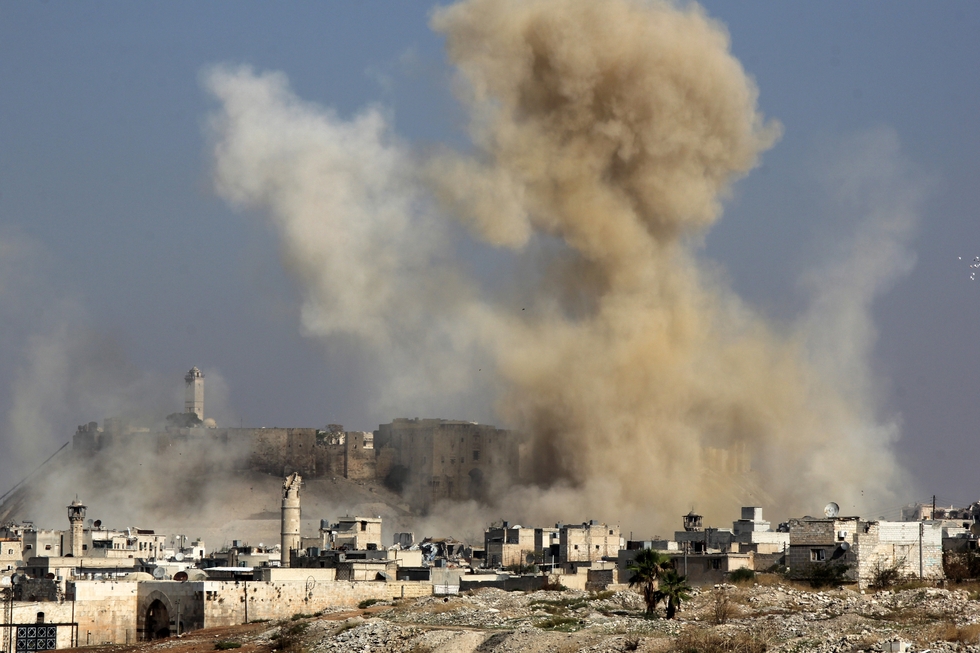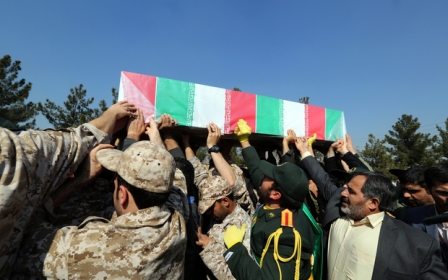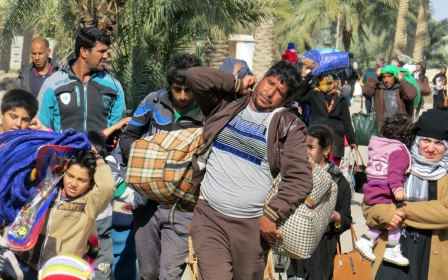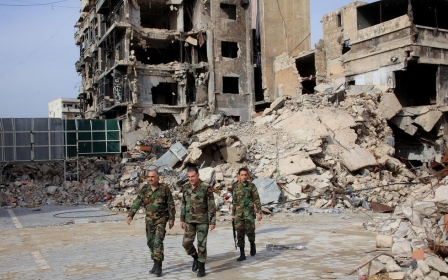Aleppo rebels unite under former Ahrar al-Sham commander

Nine leading rebel groups in Aleppo are to be unified under the leadership of a former Ahrar al-Sham commander, as the Syrian army and allied militias continue their assault on the former rebel stronghold.
The announcement on Monday that Hashem al-Sheikh, also known as Abu Jaber, is the new commander of the rebel groups, comes after demonstrations last week in which locals in Aleppo protested against the lack of unity among rebels in the beleagured city.
Hashem al-Sheikh was leader of Ahrar al-Sham until September 2015 when he was replaced by Abu Yahia al-Hamawi.
Among the groups under the new command will be Ahrar al-Sham itself, Liwa Suqor al-Jebel and the 16th Division of the Free Syrian Army. A number of the groups have been vetted by US security agencies and have in the past received international support, including US-manufactured TOW missiles.
Sam Heller, a Washington-based writer and analyst, told Middle East Eye that rebel unity had been lacking in Aleppo.
"Coordination between rebel brigades has been a persistent problem, although it seems to have affected the fight against IS most directly," he said.
However, he added that the "most proximate cause for the regime's recent gains, on the other hand, seems to be Russian aerial bombing that has overwhelmed rebels".
Ahrar al-Sham has proved itself to be among the most powerful armed groups in Syria, but its hardline Salafist views - calling for the establishment of an Islamic state and condemning democracy as “idolatry” - has made some foreign supporters uncomfortable.
It has also been willing to work with Al-Nusra Front, the Al-Qaeda affiliate in Syria, although Ahrar al-Sham has repeatedly distanced itself from the group's ideology.
The announcement comes as the UN's peace envoy for Syria, Staffan de Mistura, is set to hold talks in Damascus on Tuesday with the country's Foreign Minister Walid al-Muallem in an apparent effort to secure Syrian government commitment for a tentative internationally agreed plan for a cessation of hostilities within days.
De Mistura, who has called for peace talks to resume in Geneva on 25 February, arrived in the Syrian capital on Monday night, Syrian and UN officials said.
A UN official said that de Mistura was there to "follow up on commitments made in Munich", referring to the international security conference where the agreement to halt fighting within a week was announced last Friday.
Forces loyal to Bashar al-Assad, including Iran-backed Shia militias and the Lebanese Hezbollah group, have won numerous gains in the countryside surrounding Aleppo in recent weeks and are now threatening to surround and besiege Aleppo.
The threat of Islamic State to the east of Aleppo has also prompted a number of countries to moot the possibility of a ground intervention.
A general from Saudi Arabia said in early February that the kingdom was ready to join any ground operation launched in future by the US-led coalition against the Islamic State group.
"If there is any willingness in the coalition to go in the ground operation, we will contribute positively to that," said Brigadier General Ahmed al-Assiri.
However, Heller dismissed as unrealistic the rumours of a ground intervention.
"I don't think these are realistic, at least not in Aleppo," he said. "I can't imagine them entering this area under the threat of Russian air strikes."
Middle East Eye propose une couverture et une analyse indépendantes et incomparables du Moyen-Orient, de l’Afrique du Nord et d’autres régions du monde. Pour en savoir plus sur la reprise de ce contenu et les frais qui s’appliquent, veuillez remplir ce formulaire [en anglais]. Pour en savoir plus sur MEE, cliquez ici [en anglais].




